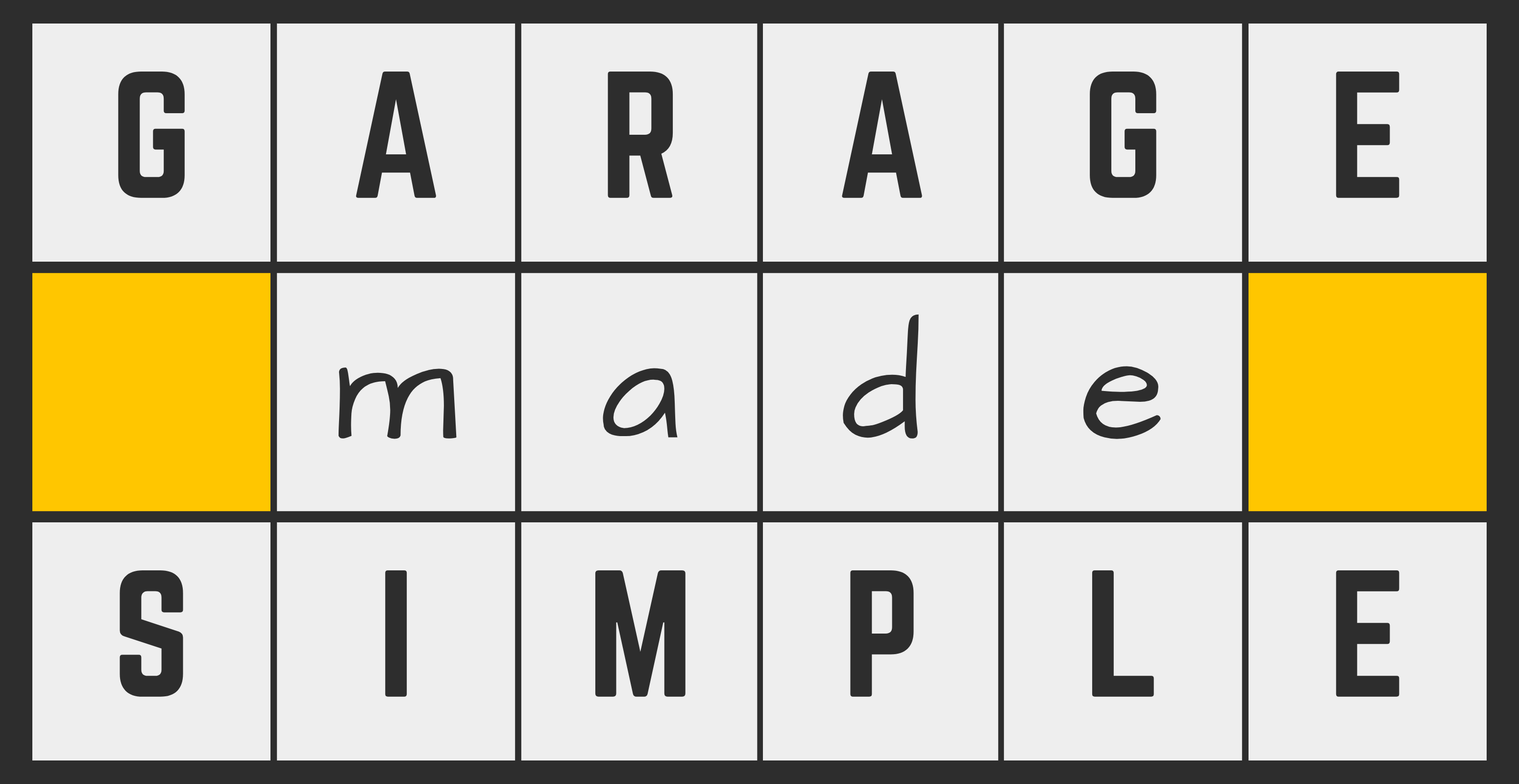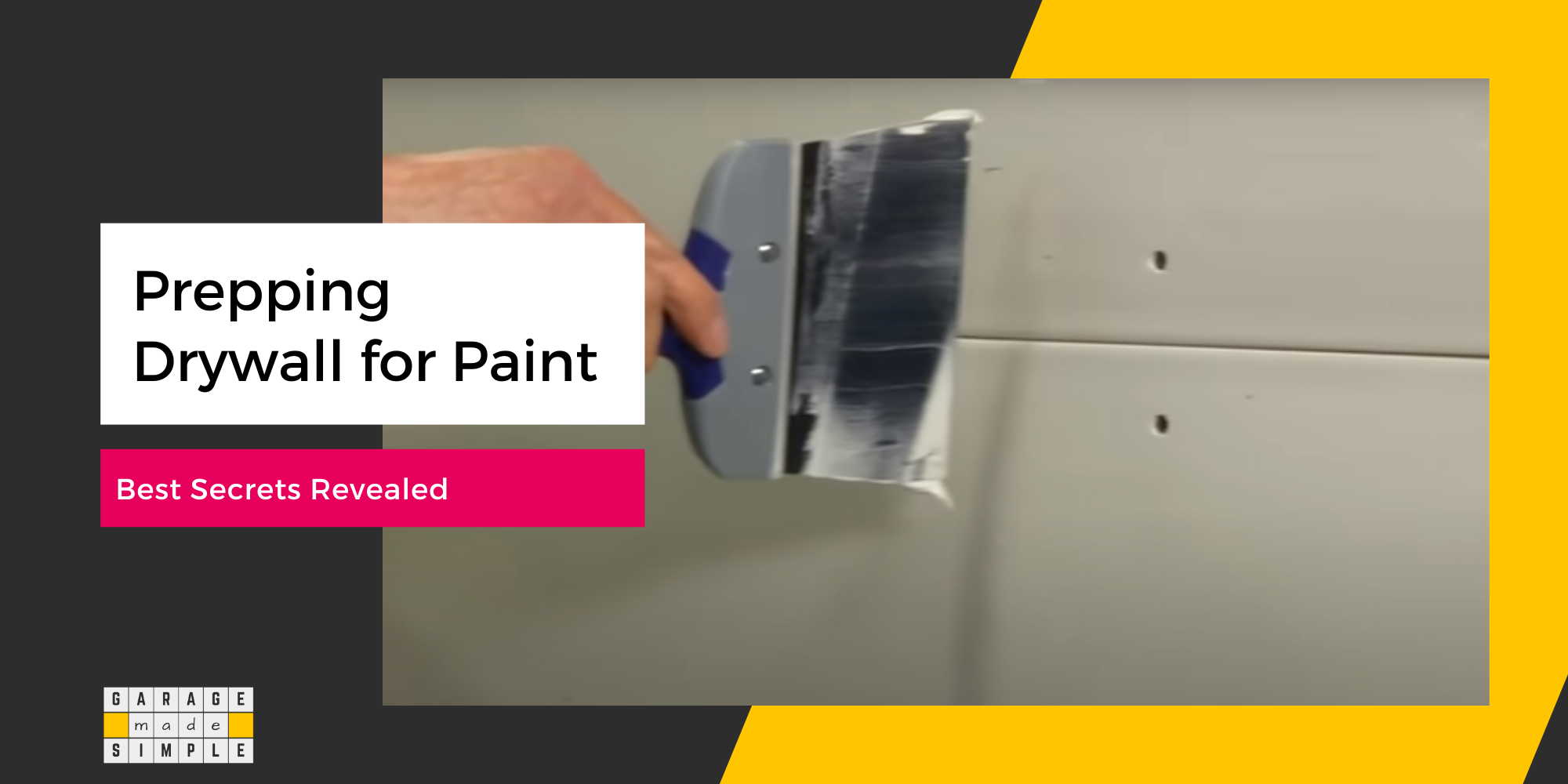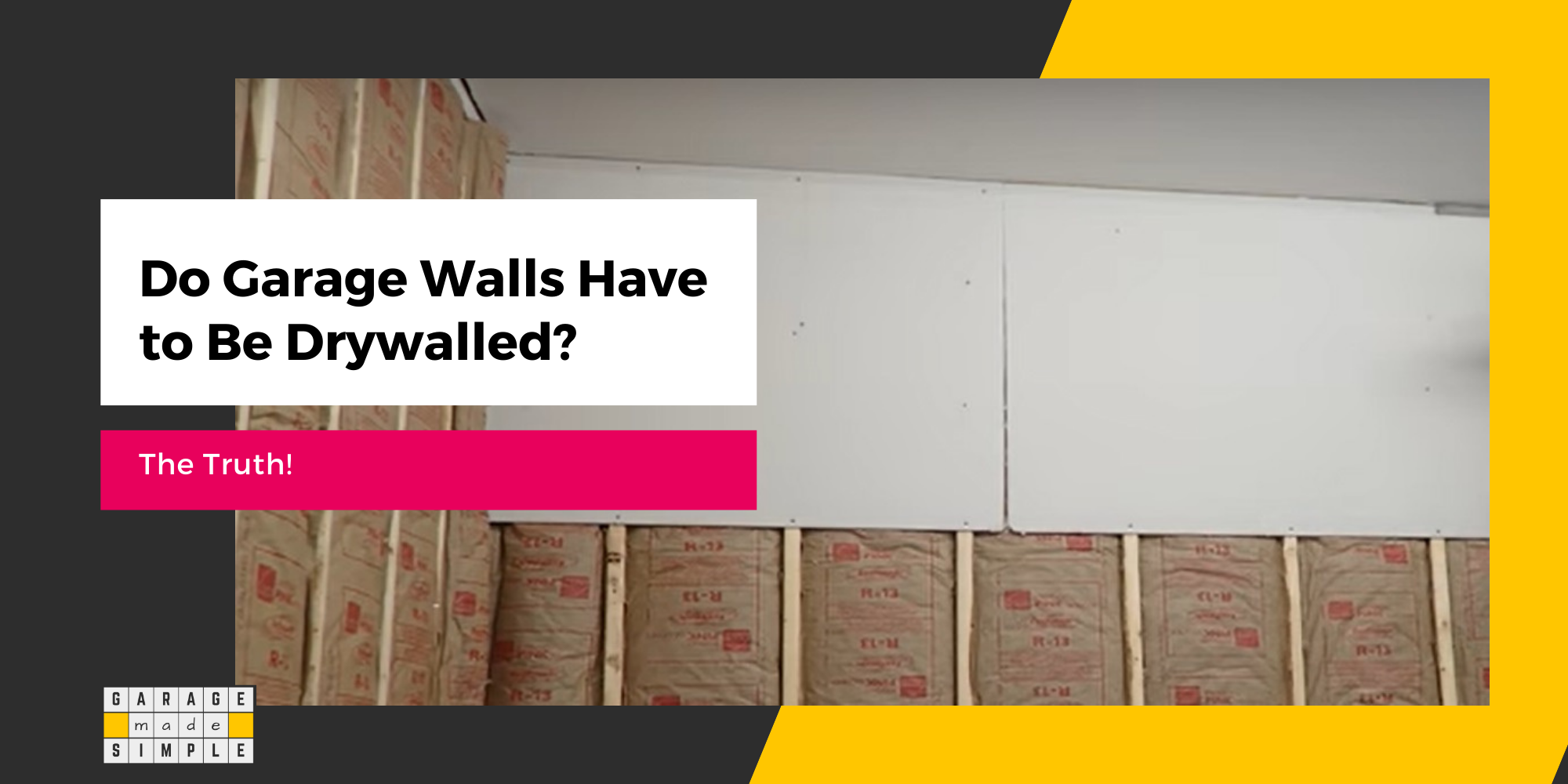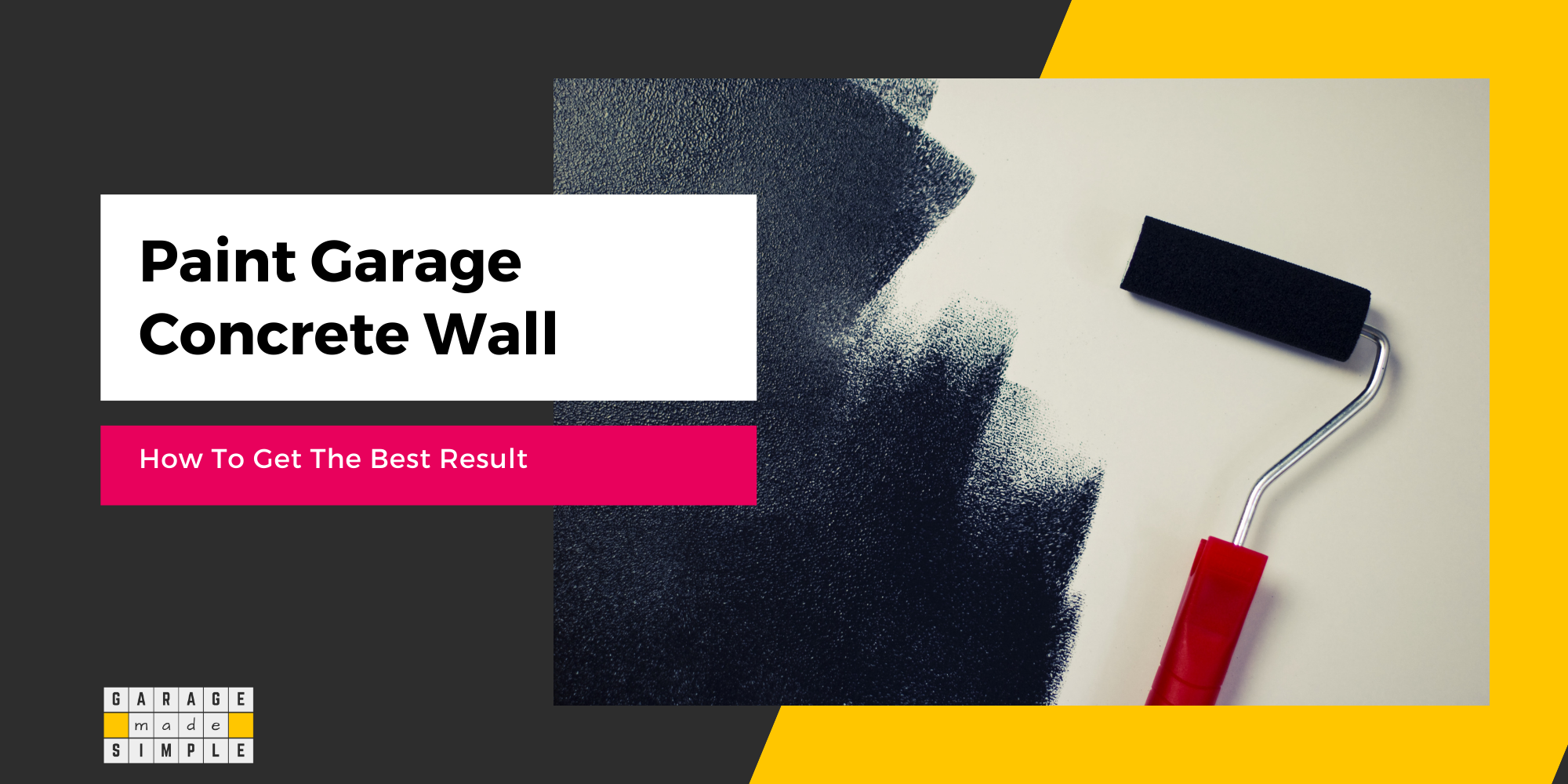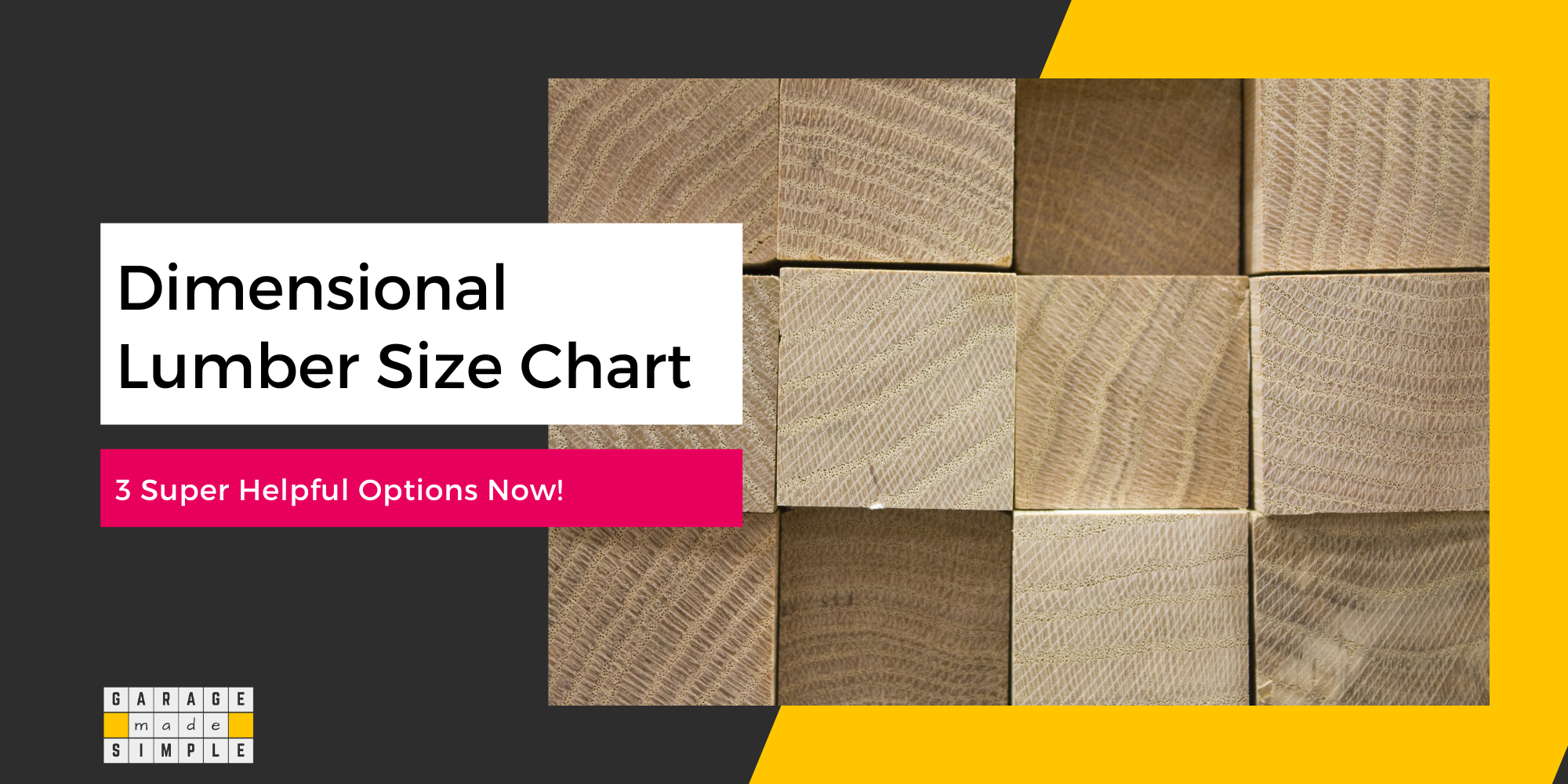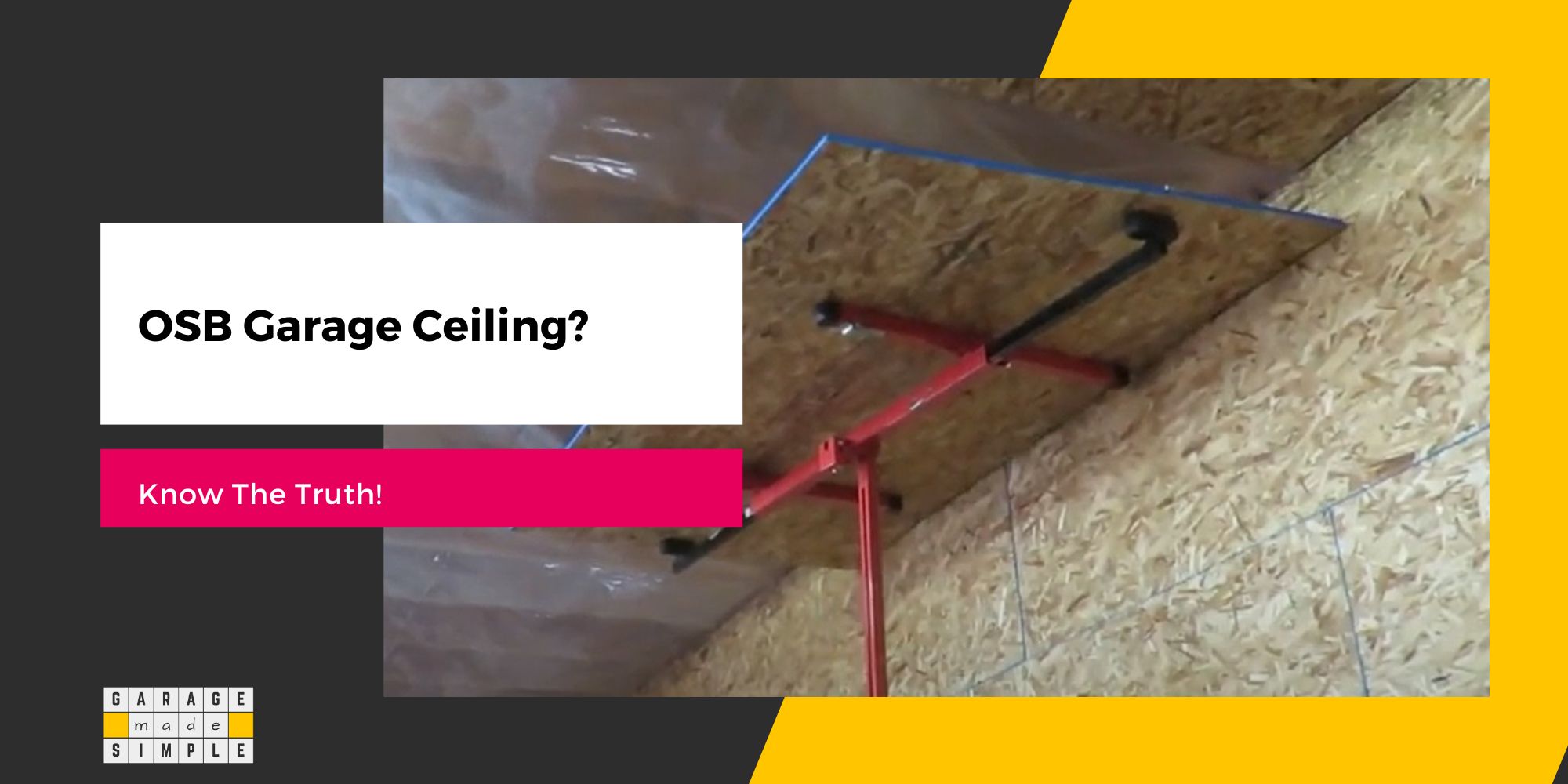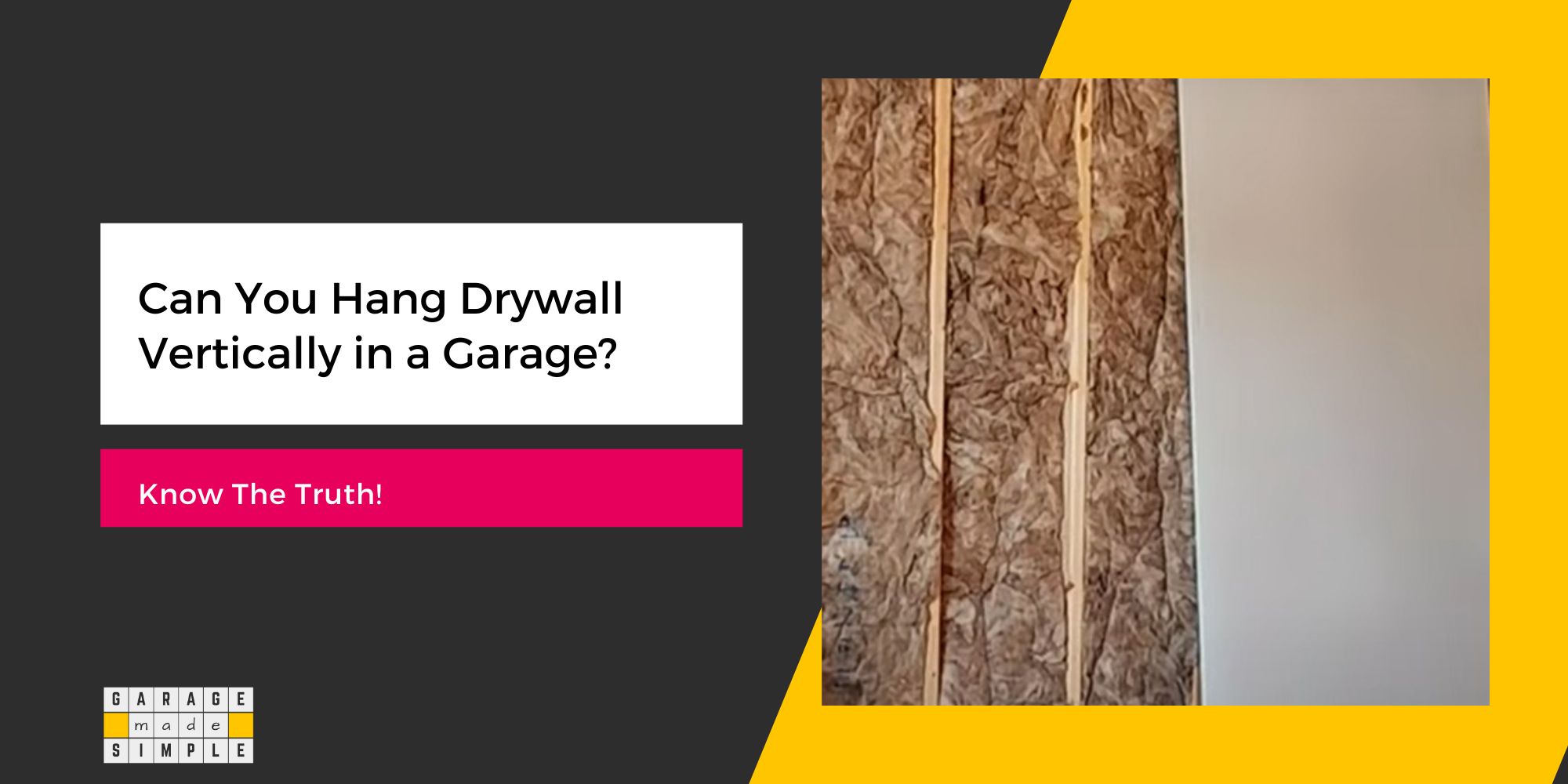10 Popular Siding for Garage Options: What is the Best?
garagemadesimple.com is a participant in the Amazon Services LLC Associates Program, an affiliate advertising program designed to provide a means for sites to earn advertising fees by advertising and linking to Amazon.com . The website is also an affiliate of a few other brands.
What Is the Best Type of Siding for Garage?
Overall the best type of siding for garage is Fiber Cement. Fiber Cement is extremely durable, mold & fire resistant and reasonably priced. Vinyl is a good alternative as it is light weight, easy to install, mold resistant and budget friendly.
Best Siding for Garage: Quick Refence
| Best For (Parameter) | Type of Garage Siding |
| Best Overall | Fiber Cement |
| Best Runner Up | Vinyl |
| Best for High Durability / Longevity | Fiber Cement, Metal, Stone Veneer, Brick Veneer |
| Best for Aesthetics / Curb Appeal | Real Wood, Stone Veneer, Brick Veneer |
| Best for Ease of Installation | Vinyl |
| Best for Fire Resistance | Fiber Cement, Stucco |
| Best for Mold Resistance | Vinyl, Fiber Cement |
| Best for Budget Conscious | Vinyl, Fiber Cement, T1-11 |
In this post I take a look at 10 garage siding options and explain their pros & cons. You will be able to make a decision on what kind of siding is best for your garage based on the performance parameters that are most important to you.
1. Vinyl Siding
Vinyl is the common name for Poly Vinyl Chloride (PVC). PVC is a synthetic resin manufactured by polymerizing ethylene and chlorine.
PVC is very dense, for a plastic (specific gravity of 1.4 for rigid PVC). This makes PVC very hard. Moreover, rigid PVC has very high tensile strength.
Vinyl siding is manufactured by a process called co-extrusion and consists of two layers. The top layer is weatherable & durable PVC. The bottom layer is also PVC, but a lower grade to keep costs down.
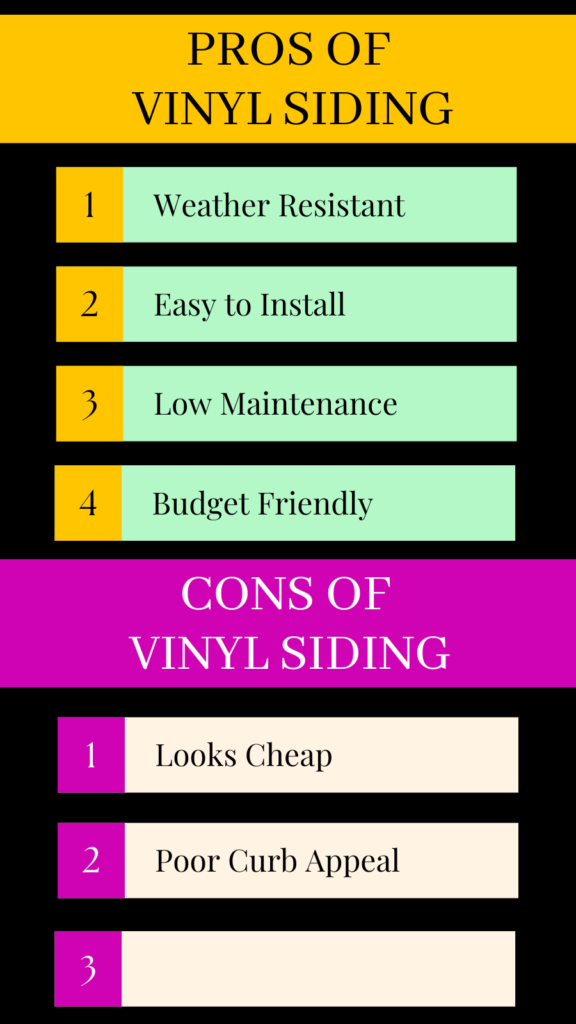
Vinyl Sidings being synthetic have the additional advantage of being water & moisture resistant. As a result they are mold & mildew resistant, rot & insect resistant. They can be extruded in a range of profiles and colors too!
Vinyl siding required for three walls of a 24×24 Garage is 635-665 square feet (including wastage & losses). The material cost will be around $2015 at Home Depot.
2. Fiber Cement Siding
Fiber Cement Siding panels are made out of cement. However, cement by itself is brittle and does not have flexural strength. So, either plant fibers or treated wood flake particles are incorporated as reinforcement and to provide tensile strength.
Fiber Cement Boards typically contain 40-60% cement, 20-30% fillers, 10-15% mica and 8-10% fibers or treated wood particles.
Fiber Cement Sidings have gained popularity in recent years as they offer a range of benefits when it comes to cladding for garage exterior walls.
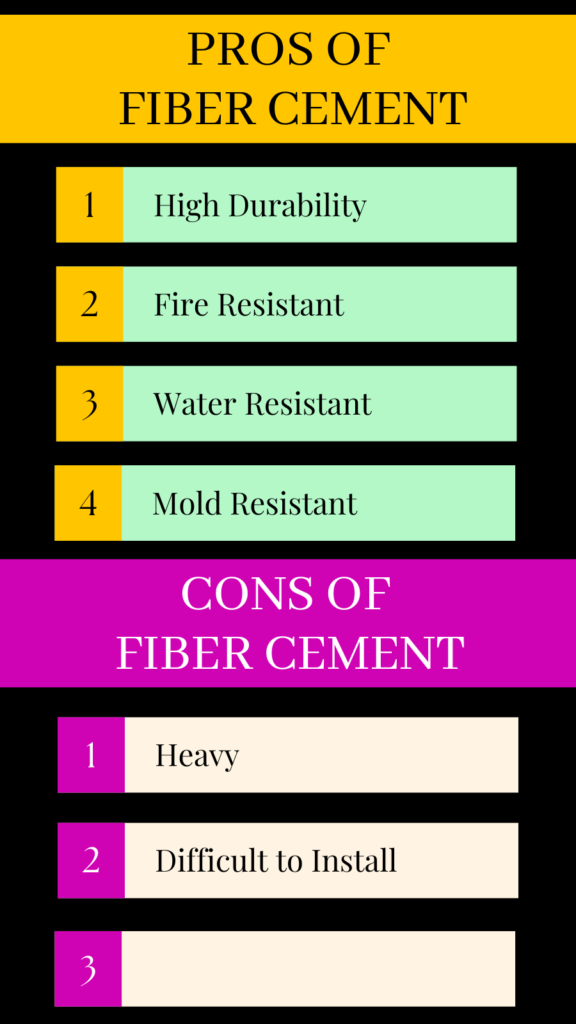
In addition to the above Fiber Cement Sidings are vermin, fungus & mildew resistant. Not only are they fire resistant they are non-combustible.
Fiber Cement siding required for three walls of a 24×24 Garage is 635-665 square feet (including wastage & losses). The material cost will be around $2570 at Home Depot, (27.5% more expensive than Vinyl Siding).
3. Composite Siding
Composite Siding (aka Engineered Wood Siding) is made from scrap wood, such as sawdust and wood shavings, that is mixed with exterior grade polymer resins & adhesives and compressed together.
Special additives are also incorporated in the manufacturing process to make the siding rot & insect resistant. Composite wood siding is a sustainable choice promoting reuse and recycling.
Composite Siding is made from scrap wood or crushed stone that is mixed with polymer resins & adhesives and compressed together. It is a sustainable choice promoting reuse and recycling.
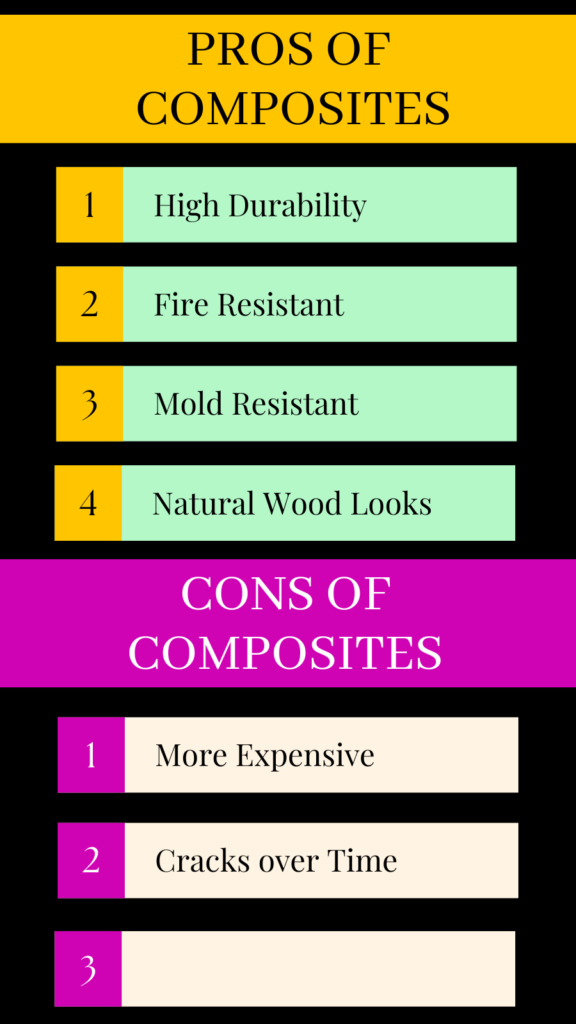
Composite Sidings can last up to 30 years. In comparison PVC sidings last for only 10 – 15 years. In addition to being mold resistant, composites are also rot & pest resistant.
Composite siding required for three walls of a 24×24 Garage is 635-665 square feet (including wastage & losses). The material cost will be around $7535 at Home Depot. This is a lot more than Vinyl or Fiber Cement but still cheaper than real wood sidings.
4. Real Wood Siding
Real Wood Siding is a classic. Using wood siding for garage exterior walls is sure to boost the curb appeal. Wood siding can be suitable for attached garages of both traditional and modern houses.
The use of Wood siding has been steadily coming down as it gets replaced by more affordable options such as Vinyl and Fiber Cement Sidings.
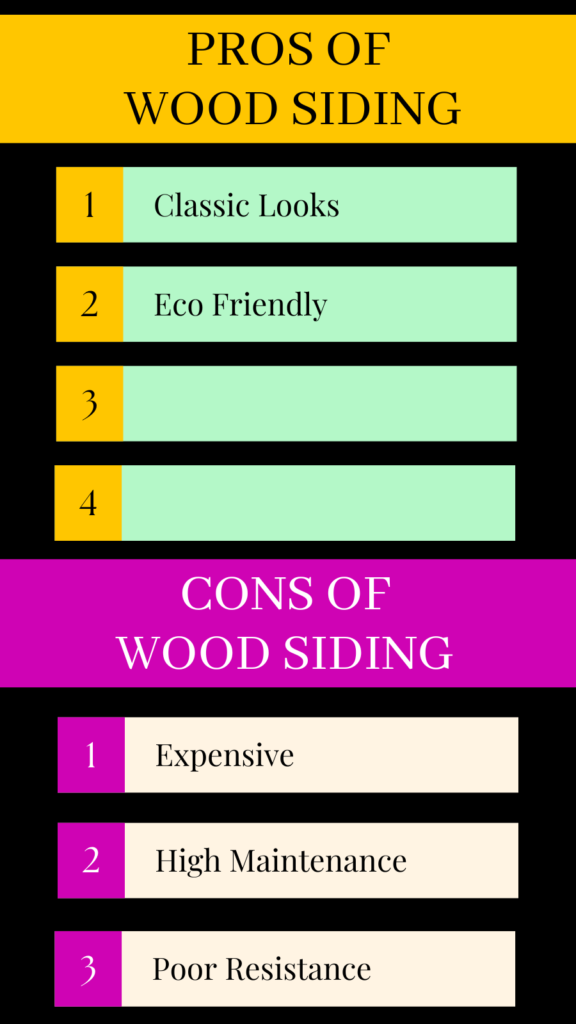
In addition to the above wood sidings can rot & decay as they have poor moisture resistance. Wood is an easy target for insects like termites & beetles.
Wood siding required for three walls of a 24×24 Garage is 635-665 square feet (including wastage & losses). The cost can vary depending on the wood species. The material cost of Cedar Wood siding will be around $8075 at Home Depot.
5. Metal Siding
Metal Siding panels have come a long way from industrial look panels used for factories & warehouses. Steel siding panels (aka Wall Cladding) are extruded in a range of interesting profiles and are precoated with aesthetically pleasing weather resistant epoxy or PU.
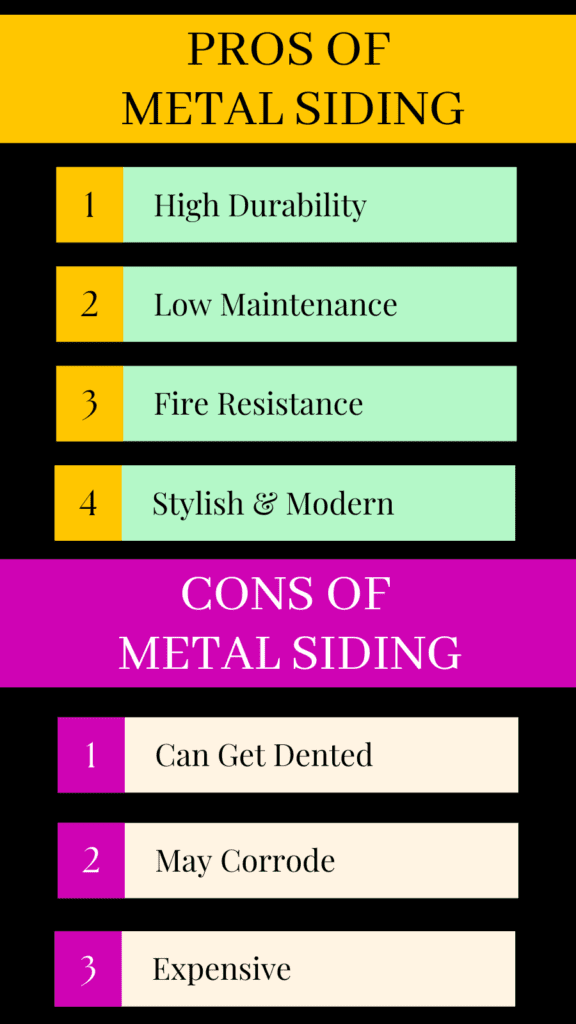
In addition metal sidings are rot & pest resistant. Light colored metal siding will reflect sunlight and keep your garage cooler during summer.
Metal sidings are not easy to install as cutting them may be challenging. Moreover, finding replacement may be difficult as well.
6. Stone Veneer Siding
Stone Veneer siding is not the same as Stone siding. Stone siding has an authentic look and feel of natural stone but it is not really a practical cladding option for a detached garage. It is too heavy and expensive!
Stone Veneer siding, on the other hand, is made from Portland cement, lightweight natural aggregates, and iron oxide pigment for coloration.
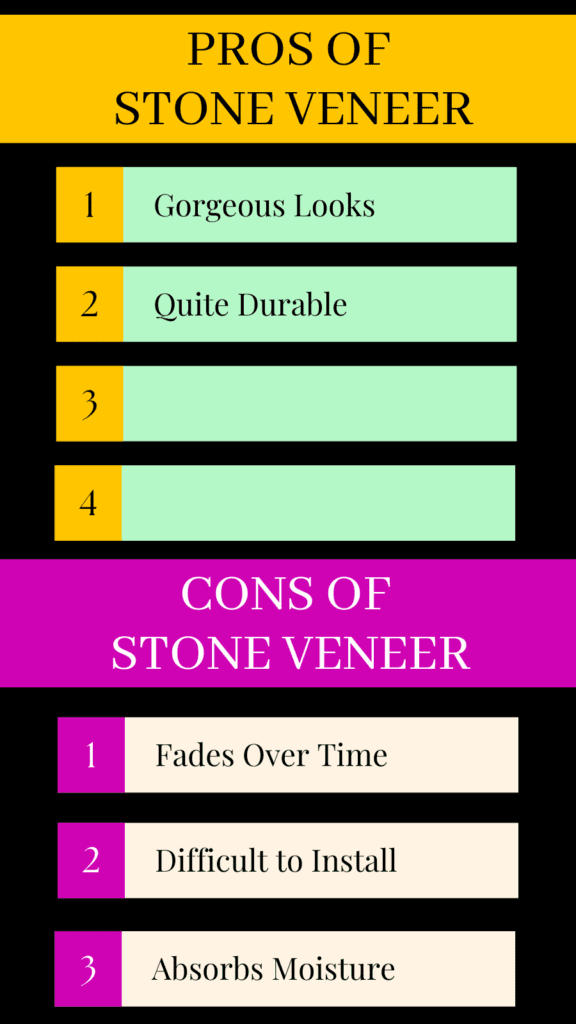
Stone Veneer Siding is rarely used for the entire garage exterior wall. It does find use as skirting or an accent wall to create a rustic and charming look.
7. Brick Siding
Brick has been used as a building material for centuries. While constructing entire buildings & homes using bricks is no longer prevalent, brick siding is still used, at times to lend character to a home and a garage.
Brick siding is much thinner than regular bricks but is still made from clay that has been baked in a fire kiln. The brick veneer is attached to the existing exterior garage wall using an adhesive.
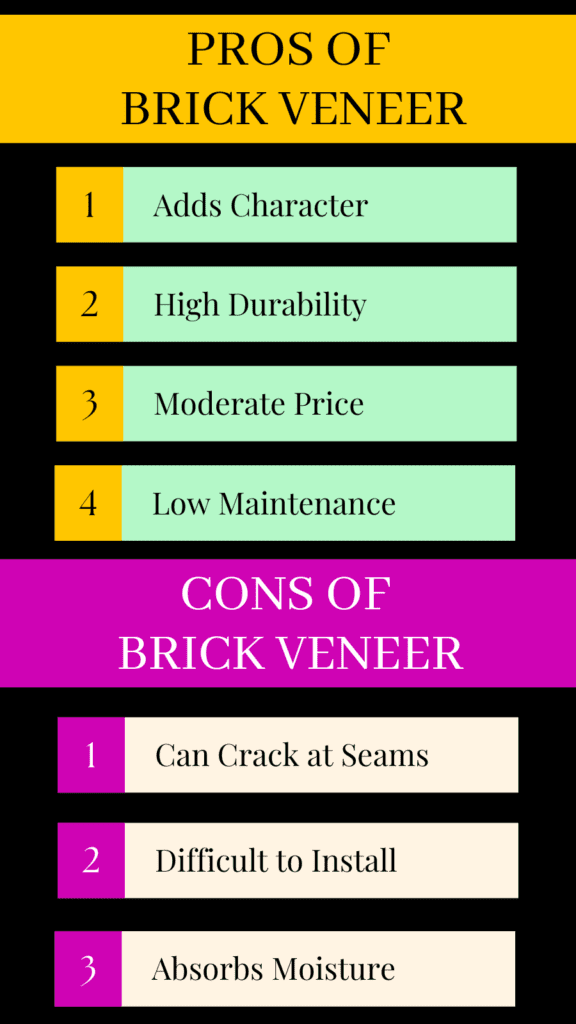
Brick veneer siding is eco friendly and fire resistant as it is made from clay. However, brick veneer siding promotes growth of mold, mildew, moss, etc. as it is porous and retains moisture.
8. T1-11 Siding
T1-11 siding is a type of plywood siding that is often used for garages and other outbuildings. T1-11 is not only economical but also easy to install. The natural woodgrain appearance is already quite attractive. However, you can always stain or paint it to match your home.
Advantages of T1-11 siding:
- Versatility: T1-11 siding can be painted, stained, cut, and arranged in different ways to achieve a variety of looks.
- Easy to work with: T1-11 siding is relatively easy to cut and install.
- Affordable: T1-11 siding is less expensive than other types of siding, such as fiber cement siding.
Disadvantages of T1-11 siding:
- Susceptible to water damage: T1-11 siding is susceptible to water damage, which can lead to rotting, warping, and mold growth.
- Requires regular maintenance: T1-11 siding requires regular maintenance, such as painting or staining, to protect it from the elements.
9. Stucco Siding
Stucco is a cement-like product applied to the outside of a home or garage in multiple layers about one inch thick. It is a durable and versatile siding material that can be used over masonry or wood frame.
Advantages of stucco siding:
- Durability: Stucco siding can last for decades with proper maintenance.
- Appearance: Stucco siding can be finished in a variety of ways, from smooth to textured. It can be tinted in a range of colors to match your home’s exterior.
- Fire resistance: Stucco siding has a one-hour firewall rating, ideal for garages.
Disadvantages of stucco siding:
- Cracking: Stucco siding tends to crack over time, especially if there is variation in outside temperatures.
- Insulation: Stucco siding does not provide much insulation value.
- Staining: Stucco siding can stain if water runs down it. It is important to use gutters and keep sprinklers away from stucco exterior siding.
- Cost: Stucco siding is more expensive to install than some other siding materials.
10. Insulated Vinyl Siding
Insulated vinyl siding is an upgrade on regular vinyl siding. A layer of foam insulation is bonded to the back of the vinyl making it more energy-efficient than traditional vinyl siding The layer of foam insulation also helps to reduce noise pollution.
Advantages of insulated vinyl siding:
- Energy efficiency: Insulated vinyl siding helps to reduce your energy bills by keeping your garage warmer in the winter and cooler in the summer.
- Noise reduction: Insulated vinyl siding can help to reduce noise pollution from outside, making your garage a quieter place.
- Durability: Insulated vinyl siding is durable and resistant to weather damage.
- Low maintenance: Insulated vinyl siding is low-maintenance and easy to clean.
Disadvantages of insulated vinyl siding:
- Cost: Insulated vinyl siding is more expensive than traditional vinyl siding.
- Installation: Insulated vinyl siding is more difficult to install than traditional vinyl siding.
Overall, insulated vinyl siding is a good choice if you live in a cold climate and plan to use your garage space for other activities like workshop, gym, etc. Of course it costs more!
How Long Does Siding for Garage Last?
Vinyl Siding – has a lifespan of 10 to 15 years. The colors can fade over time. The siding will also deteriorate with weathering, especially in areas with sandstorms or hailstorms.
Fiber Cement Siding – has a really long lifespan. You can expect it to last for at least 50 years, that is as long as the house. You may need to paint it every 5 to 7 years to keep it looking fresh.
Composite Siding – can last up to 30 years. However, you may want to slap on a coat of paint every 5-7 years.
Wood Siding – has a relatively low lifespan as it is prone to attacks by pest and moisture. It rots easily and requires regular care & maintenance. With proper care wood siding can last between 20 to 40 years.
Metal Siding – can last over 50 years, that is as long as the garage. However, you must ensure that any dents or scratches are repaired & repainted so that corrosion of the metal panel does not take place.
Stone Veneer Siding – can last anywhere between 20 to 75 years. It really depends on the type of stone used and the quality of the polymer.
Brick Veneer Siding – can last for more than 50 years. Regularly sealing the brick cladding will protect it from weathering and mold growth.
What is the Least Expensive Siding for Garage?
Vinyl Siding is the least expensive siding for garage exterior walls, if we consider the material cost only. You could easily install Vinyl Siding by yourself and save on the labor cost too. It does not require painting either.
Fiber Cement Siding cost comes close but then it is somewhat difficult to install as it is heavy. So you may need to pay a professional to install it for you. You would also have to paint it. All this bumps up the cost.
The advantage is that it has a very long lifespan, easily twice that of Vinyl siding. So in that sense it could be as cost effective as Vinyl siding.
Comparative Cost Table
| Siding | Product | Price / Case | Area / Case | Price / square feet |
| VINYL | NovikShake RS – Rough Sawn Shake Siding | $194.48 | 48.84 | $3.98 |
| FIBER CEMENT | Fiber-Cement Siding Shingle | $173.01 | 33.30 | $5.20 |
| COMPOSITE | All Weather System Composite Siding | $36.70 | 3.67 | $10.00 |
| WOOD | Shakertown Craftsman Cedar Staggered Butt Shingle Siding | $932.77 | 37.00 | $25.21 |
| METAL | 26 Gauge Architectural Grade | $360.00 | 24.00 | $15.00 |
| STONE VENEER | Non-Rated Capital Sky Style Morning Aspen | $254.54 | 14.25 | $17.86 |
| BRICK VENEER | Old Chicago Vino | $63.86 | 10.76 | $5.94 |
Thank you very much for reading the post. I do hope you found it informative and useful.
